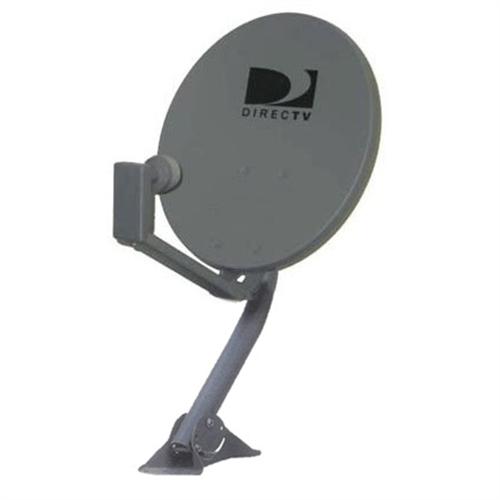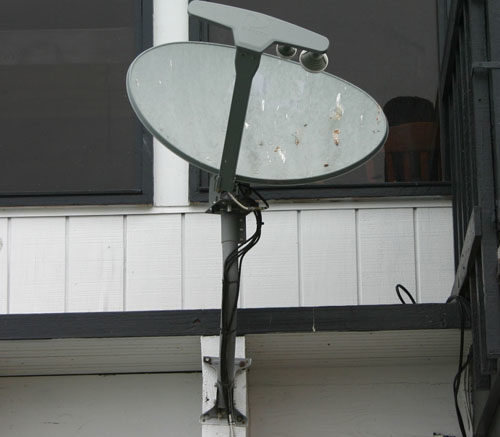The subject of satellite taxes comes up over and over. If you’re in Massachusetts, Florida, Utah, or one of the seven states that currently have a satellite tax, you see it on your bill. You may not realize that most people in the country don’t have a satellite tax, and you may just chalk it up to the cost of entertainment.
The idea of a satellite tax goes all the way back to the 19th century, long before there were ever satellites. In fact, it started with the railroad. Railroads were one of the great technological innovations of the century, and they brought people and goods across the country easily and (relatively) quickly. Before the railroad, it could take months to get anything from coast to coast, and the railroad shrank that down to 10 days.
The railroad companies built much of the western United States, putting up towns where there weren’t any, just so the trains could fuel up and get water. Where there already were towns, railroads bought property and added to the local economy. However, there was a problem. Railroads crossed public streets. Sometimes local streetcar services operated on public streets, and subways crossed through private and public property without blinking.
In order to pay for the costs of sharing the roads and digging up the parks, railroads offered easement fees to cities and towns. This was simple: railroads pay for the maintenance, the city even gets a little bit in its pockets for the inconvenience. Everybody wins.
When telegraph and telephone wires came along, and later with the rise of electricity, easement fees were already an established part of the city budget. Every telephone pole or buried power line that sits on or under public property is money in the bank toc cities and towns. By the 20th century this was just standard operating procedure.
At the same time, the utilities happily paid franchise fees to cities and towns to make sure that the competition was locked out. The argument was, the city didn’t want competing phone and power companies laying unnecessary wires, so here’s a little… something on the side… to make sure that doesn’t happen. Surprisingly, it’s legal because it benefits the public.
So, by the late 20th century, when cable TV came in and wanted to use the same poles and conduits already laid by the phone companies and power companies, they offered handsome franchise and easement fees to cities and towns. They promised local programming, high-tech service, and once again, cities and towns just had to sit back and collect.

Flash forward to the 21st century. All of sudden you can put an 18″ dish on your roof and you don’t need the cable company. All that same programming comes through the air, and the satellite companies even added your local channels. The price was lower, too, because satellite companies didn’t have to pay those fat franchise fees. Cable companies started losing subscribers, and that meant lower franchise fees to cities and towns.
So, despite the fact that satellite TV doesn’t require any city services or use of city property, several states passed taxes designed to offset the loss of that revenue. That’s right, the only justification was to make more money for the cities.
Is it fair? Proponents argued that without a satellite tax, taxes would go up for everyone because cities needed the money. Opponents pointed out that cable companies actually use public land and satellite companies don’t. Whether or not it’s fair, cities and towns had gotten too used to those franchise and easement fees and so, the taxes passed in several states.
Every so often, a bill is introduced to bring a satellite tax to another state and both DISH and DIRECTV act quickly. The SBCA (of which Solid Signal is a member) also tells the truth about satellite taxes and how they’re really nothing more than a cash grab.
So, readers, what do you think? Is a satellite tax fair? Is it just something you’ll live with because you don’t think you’ll have a choice?

